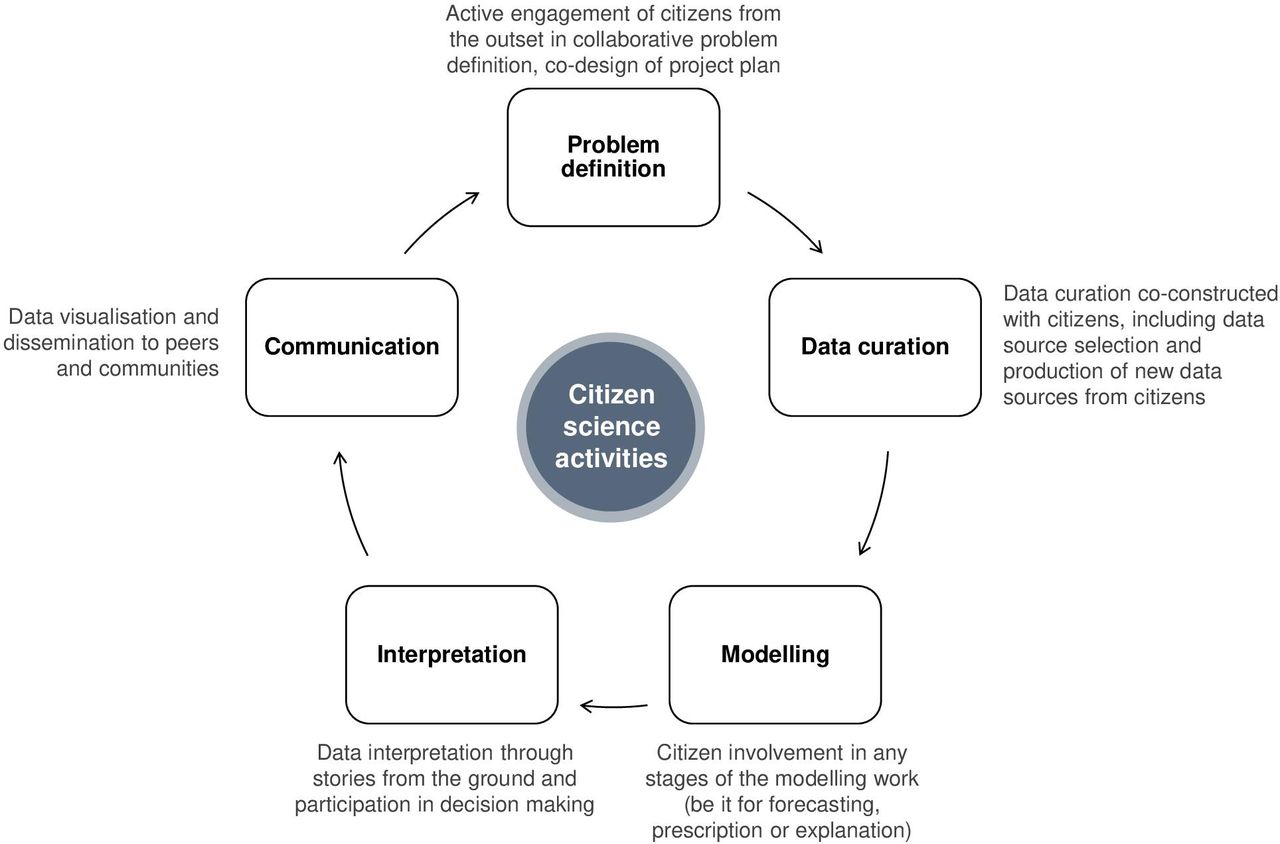A call for citizen science in pandemic preparedness and response: beyond data collection - [Paper Summary]
by Raghav Awasthi and Aditya Nagori | Jul 19, 2022 | computational health, digitalhealth, AI for Health, pandemic response, crowdsourcing for health
Summary Blog:
Covid-19 revolutionized public health policy modeling by incorporating data to a greater extent and has created an opportune time to advance people’s agency in science. Public data was used to comprehend the pandemic prognosis, identify interventions, allocate resources, and many more. However, a spectrum of challenges was also observed in data-driven decision making, from data collection through policy implementation, which emphasized human interaction as a critical feature of data-driven policy creation and implementation from start to finish.

This narrative review examines citizen science approaches in participatory data generation, modeling, and visualization, and calls for truly participatory and co-creation approaches across all domains of pandemic preparedness and response. Citizen science is defined as the practice of public participation and collaboration in scientific research to increase scientific knowledge.
As stated in the introduction of the paper, the critical research focus is trust-building among the stakeholders like clinicians, healthcare professionals, policymakers, and general citizens who are interdependent in the response to a pandemic, as well as providing direct and efficient channels of communication with communities immediately impacted by the epidemic. The paper further proposed a roadmap for the same with community participation.
To gather the literature, a search of PubMed and grey literature was carried out in February 2022 to answer the question "Can current participatory approaches in health be used to achieve the ideal state of citizen science in pandemic preparedness and response?"
Five citizen involvement activities have been suggested based on the findings of a thorough literature review. 1) Problem Identification 2) Data Collection 3)Modelling 4) Interpretation 5) Communication in which citizens must be involved
I will summarise below the key citizen activities.
Citizen science approaches in participatory data generation:
The use of mobile phones and other technologies is on the rise, and participatory data collection platforms based on digital technology are expanding quickly.
For example, surveys, mobility, sensing, images/videos, and social media posts can be gathered through mobile and web applications that also safeguard user's privacy. The collection of confidential data using such a platform is the future of the citizen scientific method of data generation.
Citizen science approaches in participatory modeling
Given the rising evidence of biases embedded in algorithms and models and the limitations in measuring structural components that might influence health outcomes, it is essential to include diverse communities in the evaluation and audit of the assumptions and data used in modelling. A required citizen science approach for participatory modeling is the goal of equitable participation of stakeholders, such as communities, scientists, and policymakers, in the modelling process.
Citizen science approaches in data visualization and communication:
To generate actionable shifts based on data-generated insights, data visualizations must be adapted to the accessibility and comprehension of various stakeholders, including the general public and policymakers. Through the co-design process and a human-centered approach, generating agreement and empowering decision-making through communal knowledge creation is feasible.
Finally, the article concluded with the remark that prior to implementing citizen science, it would be necessary to educate the community about their vital role in the phases mentioned above of collective knowledge creation and to clarify the acceptability and viability of participatory citizen scientific methodologies. And most importantly, to empower and build trust among the public, researchers, and policymakers, the active engagement of communities should be seen as a primary rather than supplementary feature of all research endeavors.
Paper link: https://gh.bmj.com/content/7/6/e009389